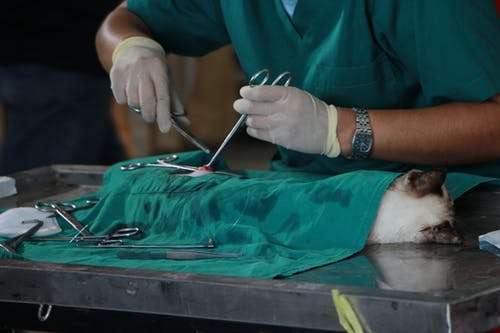
What Geriatric Pets Experience and How to Care For Them
Often it feels like one day we welcome little kittens or new puppies into our homes, and the next day we have senior pets to take care of. Your pets will require more attention and time from you when they get older.
It is up to you to step up and provide your senior pets the love and care they are worthy of for being on your side every day. Whatever it takes, however, all fur moms and dads will give a lot to prolong the lives of their fur babies.
How Old Are Senior Dogs and Cats?
Dogs and cats age faster than humans because of genes, metabolic processes, and how hard their bodies work. Growth and maturity may even be quicker for some breeds. Growing teeth and sexual maturity even take place in the very first year of their lives. Their physical and intellectual development is even faster throughout the first two years of their lives. It slows down just a little bit after that.
Old age differs depending upon species and size. Cats are considered senior at eleven years of age, the same as small breed dogs. Some big breed dogs can be considered seniors at six to seven years of age.
What Happens to Senior Dogs and Cats?
Like people, pets weaken. They start to lose energy, and their sense of sight and hearing can degrade. Their internal organs, bones, and joints end up being weak. This weakness may lead to diabetes, thyroid issues, arthritis, and cancer.
Senior pets’ fur might thin or get lighter, and some might develop bumps and swellings on their skin. Behavioral issues may even develop as some pets may experience discomfort or depression.
What Can We Do for Our Senior Pets?
To minimize the burden of old age and other health issues, consider the following suggestions to assist your senior friend. Let DenverVet.com be your partner in caring for your pets.
Regular Wellness Check
An adult pet must go to the veterinarian a minimum of once a year, but a senior pet needs to be taken for a check at least twice a year. Remember that they age quicker than you, so any indications of health concerns need to be dealt with rapidly.
Treatments or Therapy
You ought to ensure that your pets get the treatment and medication they need when recommended. Vitamins and parasite prevention meds should be provided on a regular basis to keep them strong and clear of danger from the parasites.
Some senior pets who are sick might require specialists like oncologists or ophthalmologists. See here for a vet oncologist near me. These veterinarian experts might recommend surgery, chemotherapy, cold laser treatment, etc.
Healthy and Well-Balanced Diet
Your vets will help you figure this out depending on your pet’s concerns. Some animals need specific kibbles, some require more fiber, and some might even require raw or gently cooked food. We must provide whatever they need to consume to ensure they get the best nutrition possible.
Grooming
It is vital to keep our senior pets tidy and well-groomed. Groomers, especially those in veterinary hospitals, will be able to see and inform you if abnormalities are present in your pet. It is best to find groomers who can work on senior pets. This grooming page gives you people who can manage pets in pain or those with behavioral issues due to changes in their bodies.
The Takeaway
Most essentially, providing more time and attention to senior pets is optimal. As quickly as they age, you ought to be more familiar with changes in their bodies and actions. When you are attentive and see these immediately, you may be lengthening your cuddly buddy’s life. Knowing how to look after them will give you more time to be with them.





